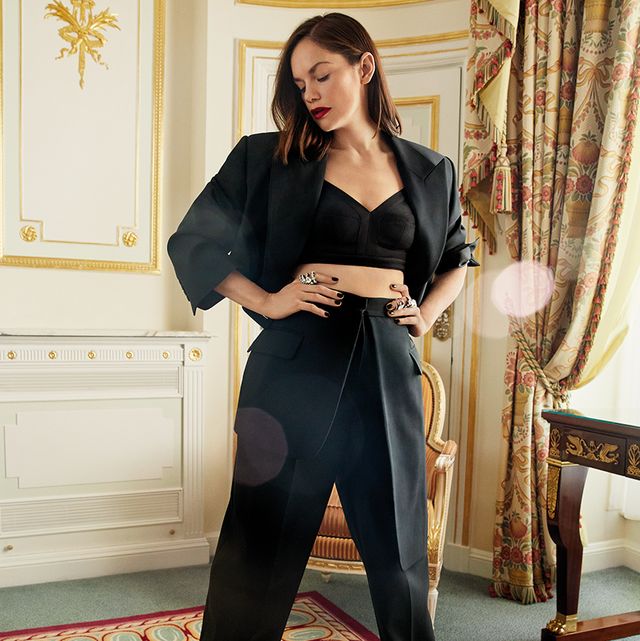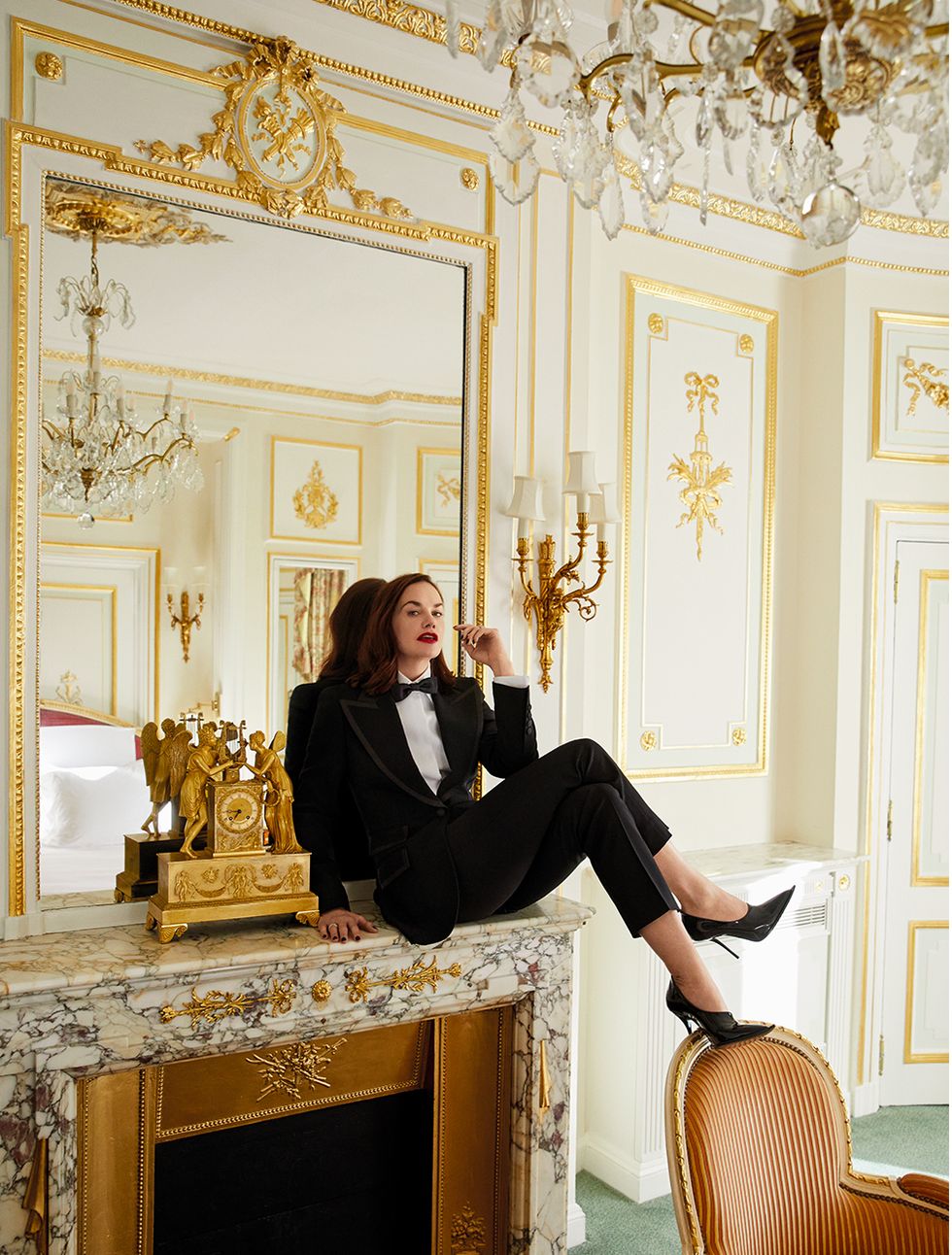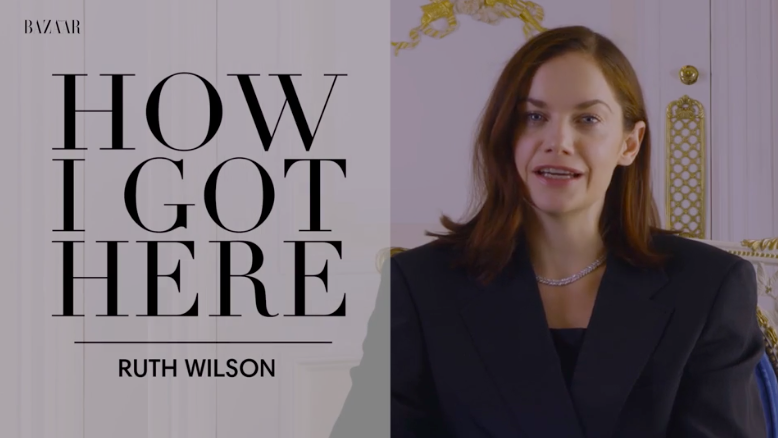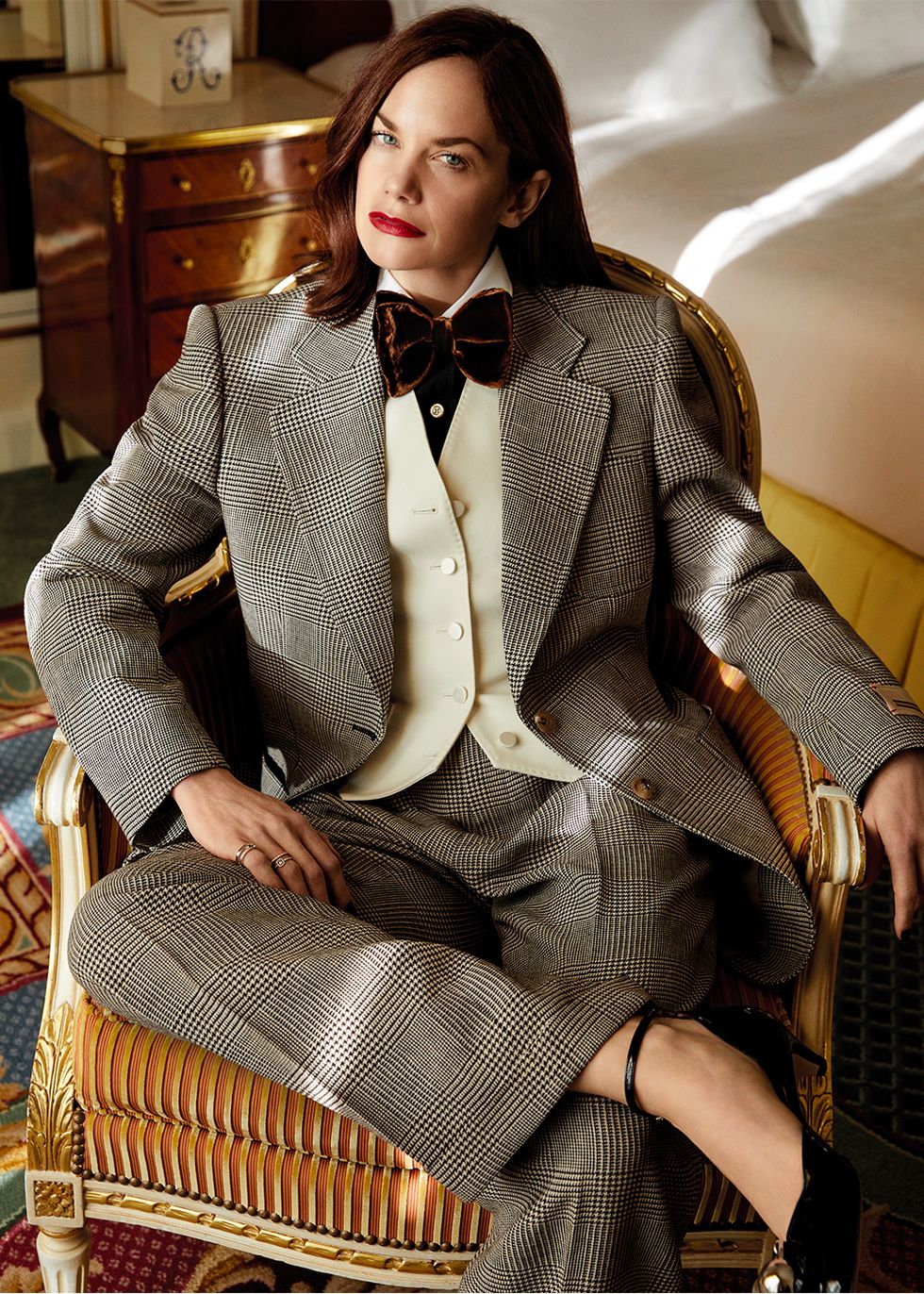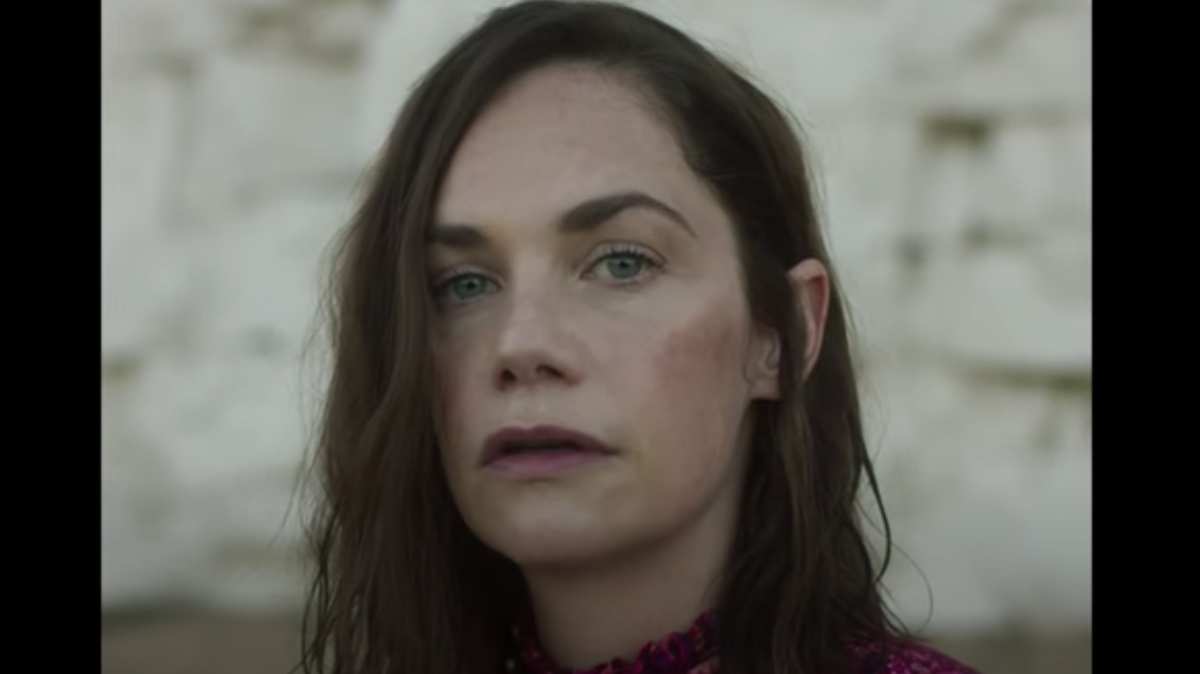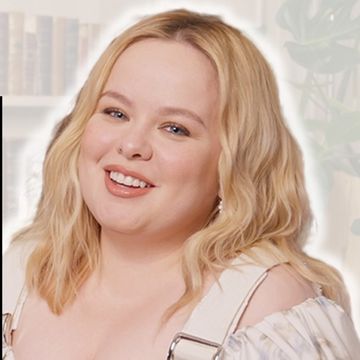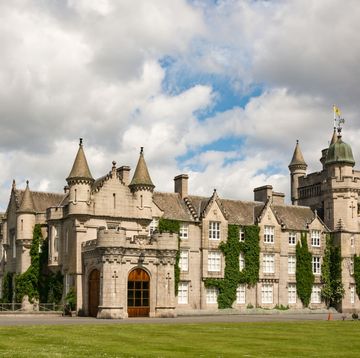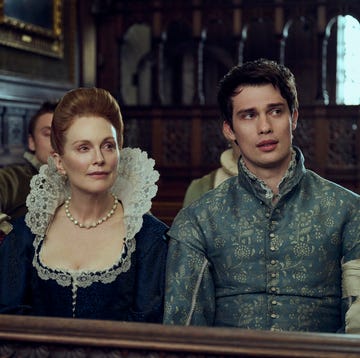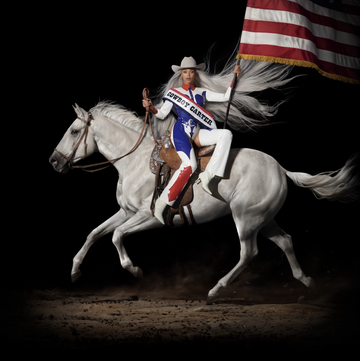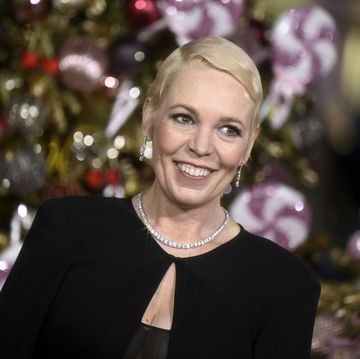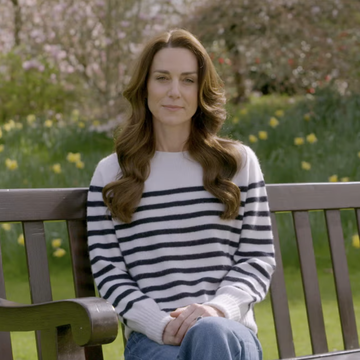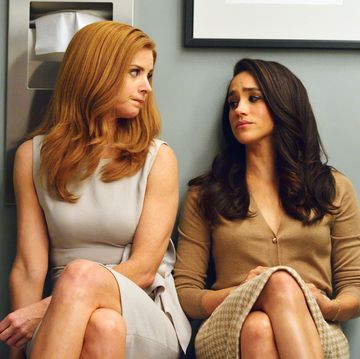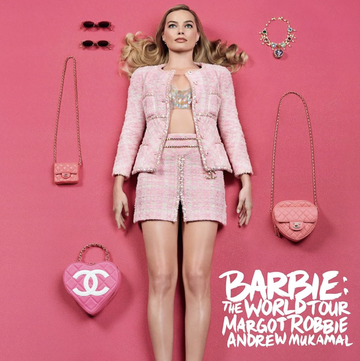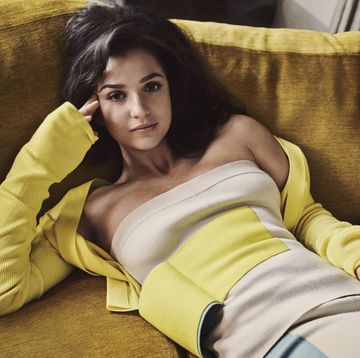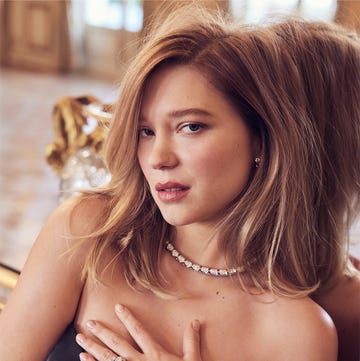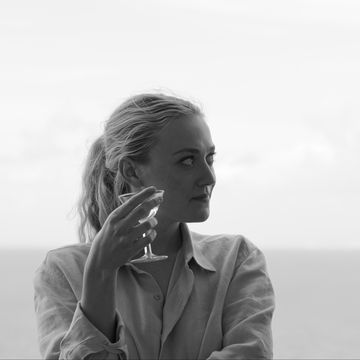As a young girl, Ruth Wilson would blush every time she was asked a question. When it was her turn to speak at drama club, she would freeze in terror and sit in silence, her cheeks burning. "Yet, I kept going back," the actress says now, as she wanders round her home, a bare-brick, fern-filled loft in an old vinegar factory in Bermondsey, taking her laptop, and thus me, with her (we are talking over Zoom). "I was so shy as a girl... and I was frightened every day at Lamda. There’s something going on with that – a sort of self-flagellation. Probably to do with Catholic guilt," she adds with a wry laugh.
It’s hard to align this younger Wilson with the person before me, who seems to navigate the film industry with strength, ease and often a raised eyebrow, portraying a series of intense, compelling characters along the way. So, when she’s described as a ‘fearless’ performer – taking on the psychopathic Alice in Luther, Mrs ‘mother of all evil’ Coulter for the BBC adaptation of His Dark Materials, The Affair’s agonised protagonist or her own grandmother in Mrs Wilson– it’s wrong? "Oh yes. I’m always seeking out projects or parts that I’m really scared of. I know now that fear energises me."
Her latest venture marks a new challenge: True Things, adapted from the novel by Deborah Kay Davies, is the first feature film Wilson has both co-produced and starred in. Set in contemporary Ramsgate, the psychological drama follows Kate (Wilson), a benefits officer and a slightly lost soul whose story intertwines with that of an entrancing, unreliable ex-convict known only as ‘Blond’. Attraction and toxicity, connection and chaos, ensue.
"It’s a very honest depiction of that initial infatuation between two people, how it can take over your whole body – and then what happens when reality creeps in," Wilson says. "Harry [Harriet] Wootliff, the director, calls it the 'Midsummer Night’s Dream Effect' – when, in the early stages, you see something magical and brilliant in another person, but eventually the veil lifts and you realise... it’s a donkey."
Wilson has, by her own admission, "been both parties in that sort of relationship". "Male or female, we all know that dance you do at the start. Are you intimate? What do you each want? You’re trying to pull them closer, or maintain an appealing distance... god, it’s so interesting, that dance," she sighs.
Blond is played by Tom Burke, with whom Wilson has terrific on-screen chemistry. She was initially reluctant to cast him, fearing that he was ‘too cerebral’. "But he brings a tortured enigma to Blond," she says now. "And as soon as we started rehearsing, I knew it was going to work. I thought, 'Oh phew, I’ve got my play partner.' I completely trusted him."
Having professional trust is important to Wilson. "It’s at the heart of acting – and working in any way – with someone else: listening and being generous to each other, so you feel safe to go somewhere with them," she says. In this context, the reported hostile working environment and mishandled sex scenes on the set of The Affair come to mind – and may explain why physical and emotional support is central to sets where Wilson has creative control.
Indeed, for True Things, she hired Ita O’Brien, the intimacy coordinator who has worked on Normal People, Sex Education and I May Destroy You. "In the past, people would avoid the subject of a sex scene and not talk about it until the day before, so you’d be left on the day to make it up as you went along," Wilson says. "At best, people felt awkward, and at worst, exploited or unsafe. An intimacy coach demands that the conversation happen with the director and actors in advance, so together you find a way to express that part of the story in a really honest, specific and safe way."
Wilson founded her production company in 2016 and called it Lady Lazarus. "Ahead of playing Hedda Gabler, I’d been reading Sylvia Plath’s diaries a lot, to get into the head of a suicidal woman, and I found her poem 'Lady Lazarus' extraordinary," she remembers. "It’s dark and angry, but it’s also beautiful, fascinating and about female rebirth." Hence, it provides the perfect name for a company that sets out to tell the stories of shape-shifting women, especially those who have, until now, been left in the shadows.
That’s not to say Wilson shies away from tackling masculine narratives as well. Having grown up with three older brothers, she tends to get along famously with her male co-stars and believes that the fight for gender, racial or financial equality should be universal. "We are all humans," she says. "The more we see different perspectives, the better – and wow, are there more stories to be told, and more ways to tell them."
This month, Wilson will be returning to the West End to perform Jean Cocteau’s 1930 monologue play The Human Voice, starring as a young woman who speaks to her lover on the telephone one last time. She is looking forward to immersing herself once again in the ‘magic and danger’ of theatre, as well as reuniting with Ivo van Hove, who directed her exceptional Hedda Gabler in 2017. "Working with Ivo is one of the most refreshing things you can do," she tells me. "He brings me out of my head; he doesn’t believe in psychologising anything. Instead, he just tries to find the wild things a human does in moments of tragedy, of love, of grief, humour or joy."
Travelling to the psychological wilderness suits Wilson. "I’m certainly drawn to the extremes, the edges... I basically find that when I finish commercial bits of work, I then have to go off and do my weird shit – independent films, plays, whatever," she says. She is particularly keen to try more comedy. "I’m realising more and more that playing a character is about stripping off your own mask, being more you and being seen as you," she reflects.
Still, there will always be something intangible in the performances of a woman who confesses to being something of a riddle, including to herself, and who thrives on exploring the most elusive enigmas. "Acting remains a mystery to me... I can never hold onto it. That’s why, alongside other storytelling, I’ll probably be doing it my whole life."
‘True Things’ is in cinemas from 1 April. ‘The Human Voice’ is at the Harold Pinter Theatre from 17 March to 9 April.
